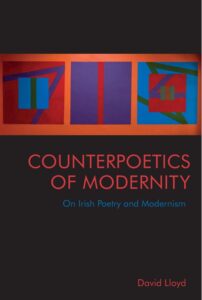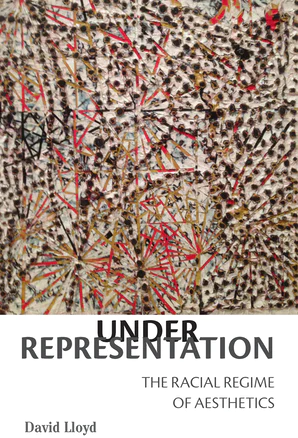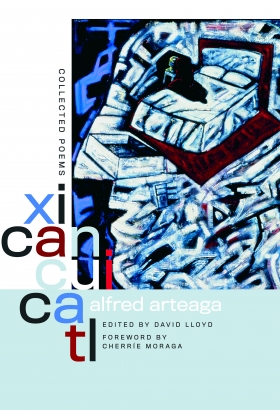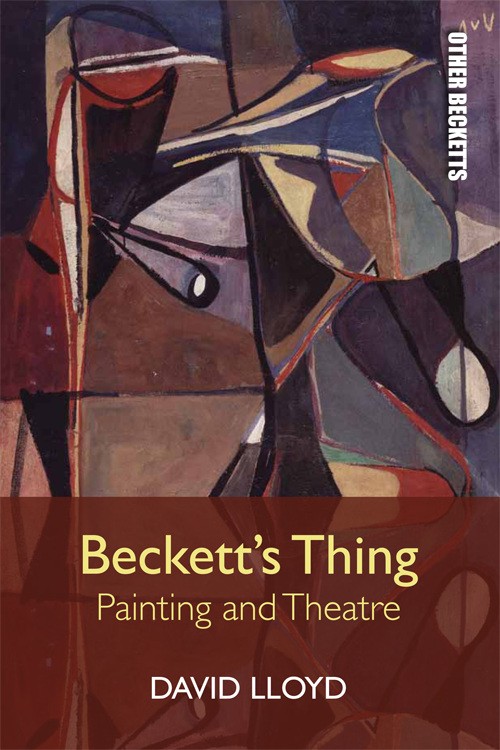Counterpoetics of Modernity: On Irish Poetry and Modernism

This study puts contemporary Irish poetry in dialogue with major debates and concerns of European and American poetics. David Lloyd tracks the traits of Irish poetic modernism, from fragmentation to the suspicion of representation, to nineteenth-century responses to the rapid and unsettling effects of Ireland’s precocious colonial modernity, such as language loss and political violence. He argues that Irish poetry’s inventiveness is driven by the need to find formal means to engage with historical conditions that take from the writer the customary certainties of cultural continuity, identity and aesthetic or personal autonomy, rather than by poetic innovation for its own sake. This reading of Irish poetry understands the innovative impetus that persists through Irish poetry since the 19th century as a counterpoetics of modernity. Opening with chapters on Mangan and Yeats, the book then turns to detailed discussions of major Irish contemporary poets never before the focus of a book-length study: Trevor Joyce, Maurice Scully, and Catherine Walsh.
On Counterpoetics of Modernity:
“In its adaptation and recasting of Édouard Glissant’s notion of a counter or forced poetics as an alternative to the frequently anodyne critical conceptions of Irish modernism, Lloyd’s study constitutes a groundbreaking account and authoritative re-evaluation of innovative Irish poetries from the nineteenth to the twenty-first century.”
Alex Davis, University College Cork
Under Representation: The Racial Regime of Aesthetics

Under Representation shows how the founding texts of aesthetic philosophy ground the racial order of the modern world in our concepts of universality, freedom, and humanity. In taking on the relation of aesthetics to race, Lloyd challenges the absence of sustained thought about race in postcolonial studies, as well as the lack of sustained attention to aesthetics in critical race theory.
Late Enlightenment discourse on aesthetic experience proposes a decisive account of the conditions of possibility for universal human subjecthood. The aesthetic forges a powerful “racial regime of representation” whose genealogy runs from enlightenment thinkers like Kant and Schiller to late modernist critics like Adorno and Benjamin. For aesthetic philosophy, representation is not just about depiction of diverse humans or inclusion in political or cultural institutions. It is an activity that undergirds the various spheres of human practice and theory, from the most fundamental acts of perception and reflection to the relation of the subject to the political, the economic, and the social.
Representation regulates the distribution of racial identifications along a developmental trajectory: The racialized remain “under representation,” on the threshold of humanity and not yet capable of freedom and civility as aesthetic thought defines those attributes. To ignore the aesthetic is thus to overlook its continuing force in the formation of the racial and political structures down to the present. Across five chapters, Under Representation investigates the aesthetic foundations of modern political subjectivity; race and the sublime; the logic of assimilation and the stereotype; the subaltern critique of representation; and the place of magic and the primitive in modernist concepts of art, aura and representation.
Both a genealogy and an account of our present, Under Representation ultimately helps show how a political reading of aesthetics can help us build a racial politics adequate for the problems we face today, one that stakes claims more radical than multicultural demands for representation.
“If there is any hope for the human, and if the idea of the human is of any use to the enactment of that hope, then the aesthetic claims and categories through which the human and its subjects are exalted and degraded must be placed under the most violent and most loving scrutiny. Under Representation exemplifies such scrutiny. The rigorous care with which David Lloyd examines and challenges the entanglement of race, representation and the aesthetic is irresistible and indispensable. Under Representation is a major, and singular, achievement.”
Fred Moten, New York University
Review: The racial regime of aesthetics: On David Lloyd’s Under Representation
The originality of his project lies in its attempt at grasping race in neither a sociological, phenomenological or psychoanalytical register, but in a typically critical and post-critical register in which the logical defines the categories of experience. It is precisely because of Kant’s puzzlement with regard to the (possible) formalisation of aesthetic experience and the elaboration on ‘reflective judgement’ that the Third Critique is a particularly interesting place to start. Indeed, this uncertainty would manifest the presence of concurrent or competing movements of generalisation / universalisation, between the formal equality of judgement and the empirical diversity of the human. At the heart of this conflict lies the empirico-transcendental doubling that captivated Foucault, but which the latter failed to investigate from the standpoint of racial difference. Like Denise Ferreira da Silva, who draws abundantly on the Kantian corpus, Lloyd understands that it is on such a hypothesis that our ability to offer an analysis of the representation mechanisms at the root of racialisation and racial judgement depends.
Lucie Kim-Chi Mercier , Radical Philosophy, RP 2.06 (Winter 2019)
Xicancuicatl: Collected Poems

Xicancuicatl collects the poetry of leading avant-garde Chicanx poet Alfred Arteaga (1950–2008), whom French philosopher Gilles Deleuze regarded as “among those rare poets who are able to raise or shape a new language within their language.” In his five published collections, Arteaga made crucial breakthroughs in the language of poetry, basing his linguistic experiments on the multilingual Xicanx culture of the US Southwest. His formal resources and finely tuned ear for sound patterns and language play remain astonishing. His poetical work, presented as a whole here for the first time, speaks more than ever to a moment in which border-crossing, cultural diversity, language-mixing and a multi-cultural vision of America are critical issues.
“Alfred Arteaga’s poems have the courage of dislocation, moved in underworld descent, migration, prophecy, protest, starry skies, and heteroglossia. Gathered at last into a single book, Xicancuicatl is an epic cycle for our times.”
Edgar Garcia, author of Skins of Columbus: A Dream
Xicancuicatl: Collected Poems / audio recordings
0:16 / 1:16:49
Hot off the Presses: Xicancuicatl: Collected Poems By Alfred Arteaga
A Panel at the Center for Ideas and Society, University of California, Riverside, Jan 13, 2021
Beckett’s Thing: Painting and Theatre

Beckett was deeply engaged with the visual arts and individual painters, including Jack B. Yeats, Bram van Velde, and Avigdor Arikha. In this monograph, David Lloyd explores what Beckett saw in their paintings. He explains what visual resources Beckett found in these particular painters rather than in the surrealism of Masson or the abstraction of Kandinsky or Mondrian. The analysis of Beckett’s visual imagination is based on his criticism and on close analysis of the paintings he viewed. Lloyd shows how Beckett’s fascination with these painters illuminates the ‘painterly’ qualities of his theatre and the philosophical, political and aesthetic implications of Beckett’s highly visual dramatic work.
“Lloyd adroitly links aesthetics with ethics through the res publica, situating Beckett’s aesthetic impasse on firmly political ground. In this valuable volume, Lloyd’s exemplary close reading of paintings by Yeats, van Velde, and Arika articulate the extent to which “the visual dimensions of Beckett’s drama are spaces of thought” that extend and develop his critical aesthetics within an ethical and political framework.”
Derval Tubridy, Goldsmiths, University of London